At the end of July, fans and teams from all over the country congregated at the world-famous Laguna Seca Raceway to watch some of the most talented drivers in the world turn left, left, right, and then right again as they navigate the high-speed corners of the track and race towards its iconic Corkscrew turn.
Racing is like any other sport in the way you pick favorites: An affinity for your local team translates to a love for a local driver (shoutout Arizona resident Frankie Muniz), someone winning their first champ ring cementing them as your champ (anyone else watch Verstappen in ‘21?), or maybe you just identify with them for one reason or another. For me, that last one is Myles Rowe.
Here’s the quick bio on Rowe: he races in the Indy NXT series, which is essentially America’s version of Formula 2. It’s the series you have to go through before, hopefully, making it to the top of the ladder. As with Formula 2, the number of obstacles to success is essentially unlimited, and talent is only a fraction of what is required to be a success. In racing, as in life, a little talent and a lot of money go much further than the inverse.
The 25-year-old from Georgia isn’t cool just because he’s a race car driver; he’s cool because he’s the first Black person to win in the discipline. I love motorsports, and particularly IndyCar, but it’s rare to see someone who looks like me. Obviously, NASCAR has Bubba Wallace and F1 has Lewis Hamilton. Indy had Willy T. Ribbs, but his last Indy 500 ride was before I was born.
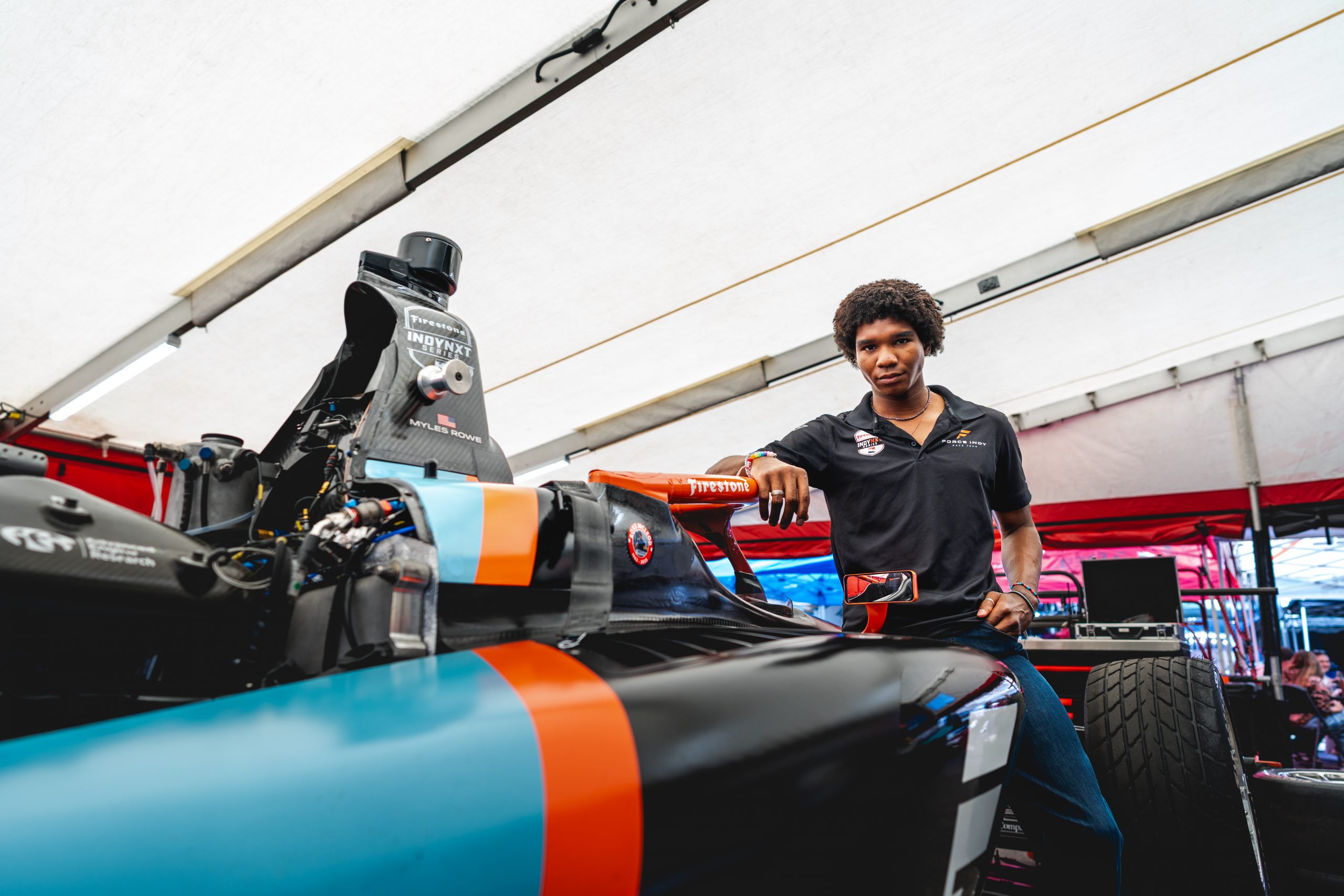
Winning a race should make you cool, but the reality is that there are plenty of people who have won races you’d never want to have a beer with. The promise of Drive To Survive was that race car drivers would become more like real people, but the reality, especially in America, the safe choice is to be boring. Rowe is anything but boring.
He hasn’t yet found the success to make him a household name, but he exudes a confidence and a cool that made me want to interview him. I wanted to know where his love of racing came from, what it was like being an outsider in a largely white world, and what the hell he was thinking by trying to be a professional driver from Brooklyn, where he doesn’t even own a car. Did I mention I got to take photos of him with my 100-year-old film camera? I just wanted to add that part.
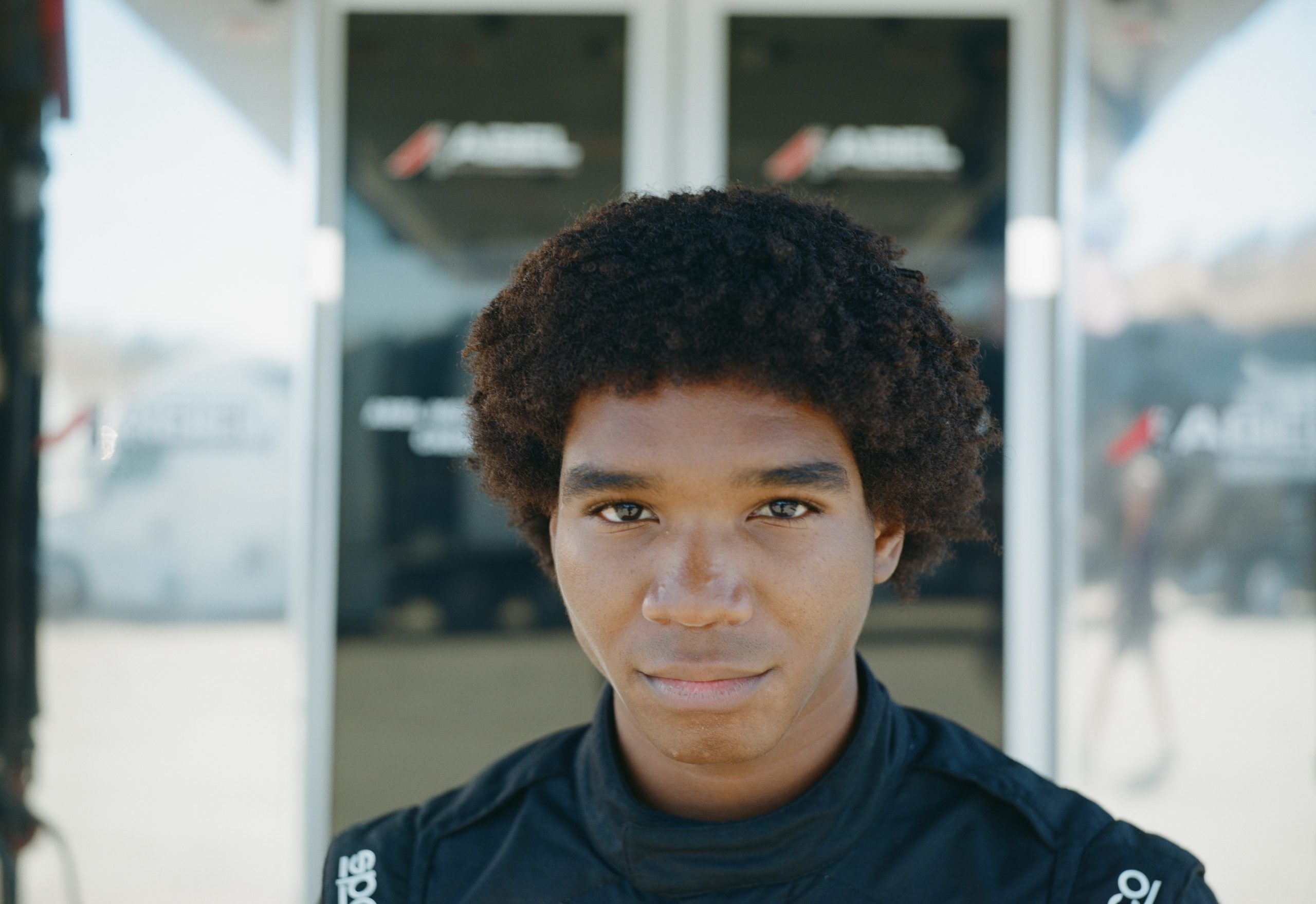
The Interview
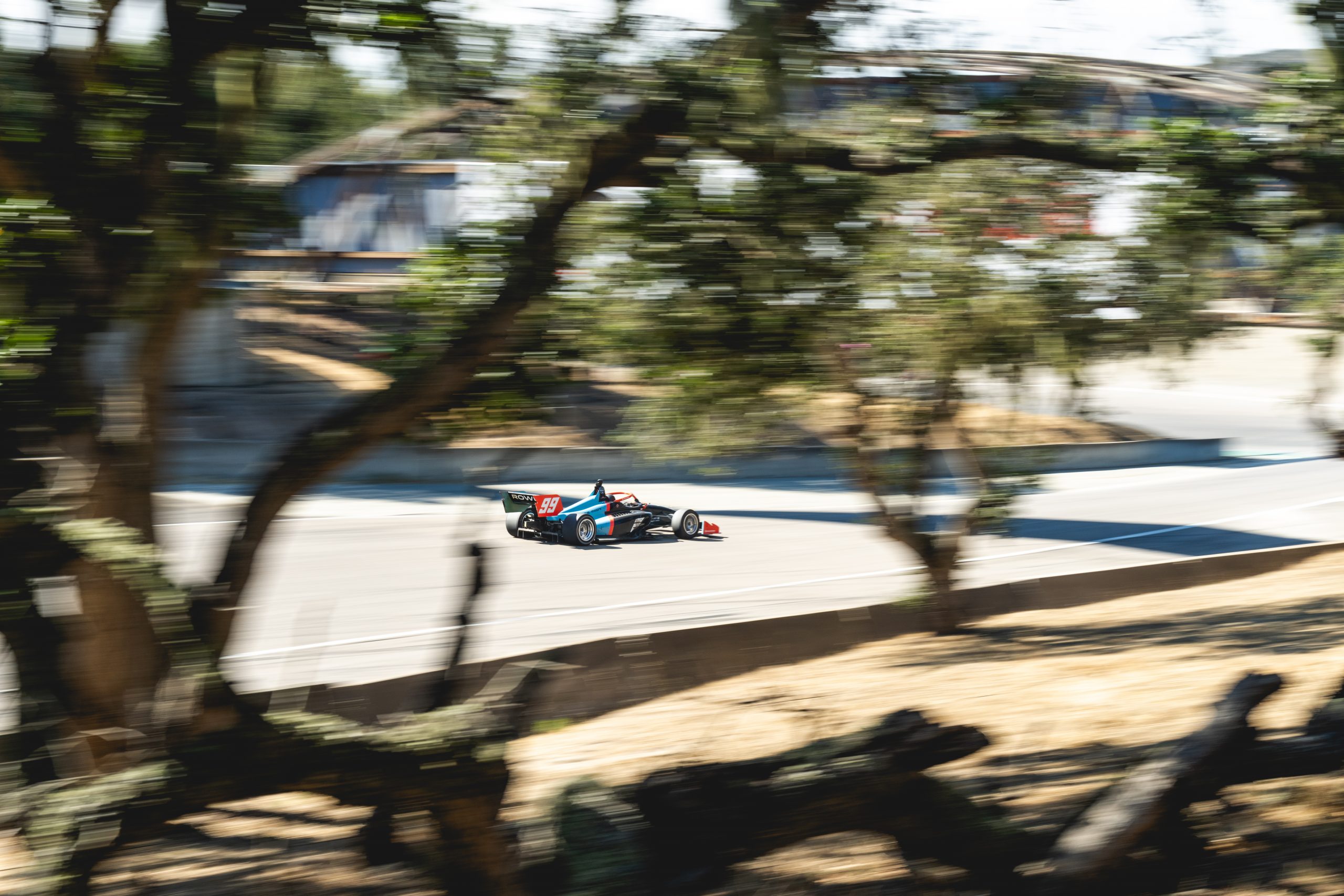
GRIFFIN: You are starting P4 in the first race, you said P6 in the second. How do you feel going into that?
ROWE: I feel good going into the race. I know I’m gonna be well off in the race. Disappointed with the end result of qualifying. I know we had a little bit more pace in that, at least to maybe start P4 in race 2, because the way it works is we have two different groups. So even if you end up P2, or even like in the case of my group, if you end up P1 in that group […], and then the second group went faster, even though you’re P1, you start P2. So since I was P2 in that group, I’ll start P4. So the second [race], it goes off a first fast time, second fast time. So my second fastest time was like on the third of that [group], so I have to start P6 for the second race. So, a little bit disappointed with that, because you want to be higher, and it’s a little bit tough to pass on this track. But, you know, I think it’ll be fun once I get to the race. I always reset. I’m still in the process of resetting right now, but in the next 15 minutes or so, I’ll be pretty pumped to get on the track and do it.
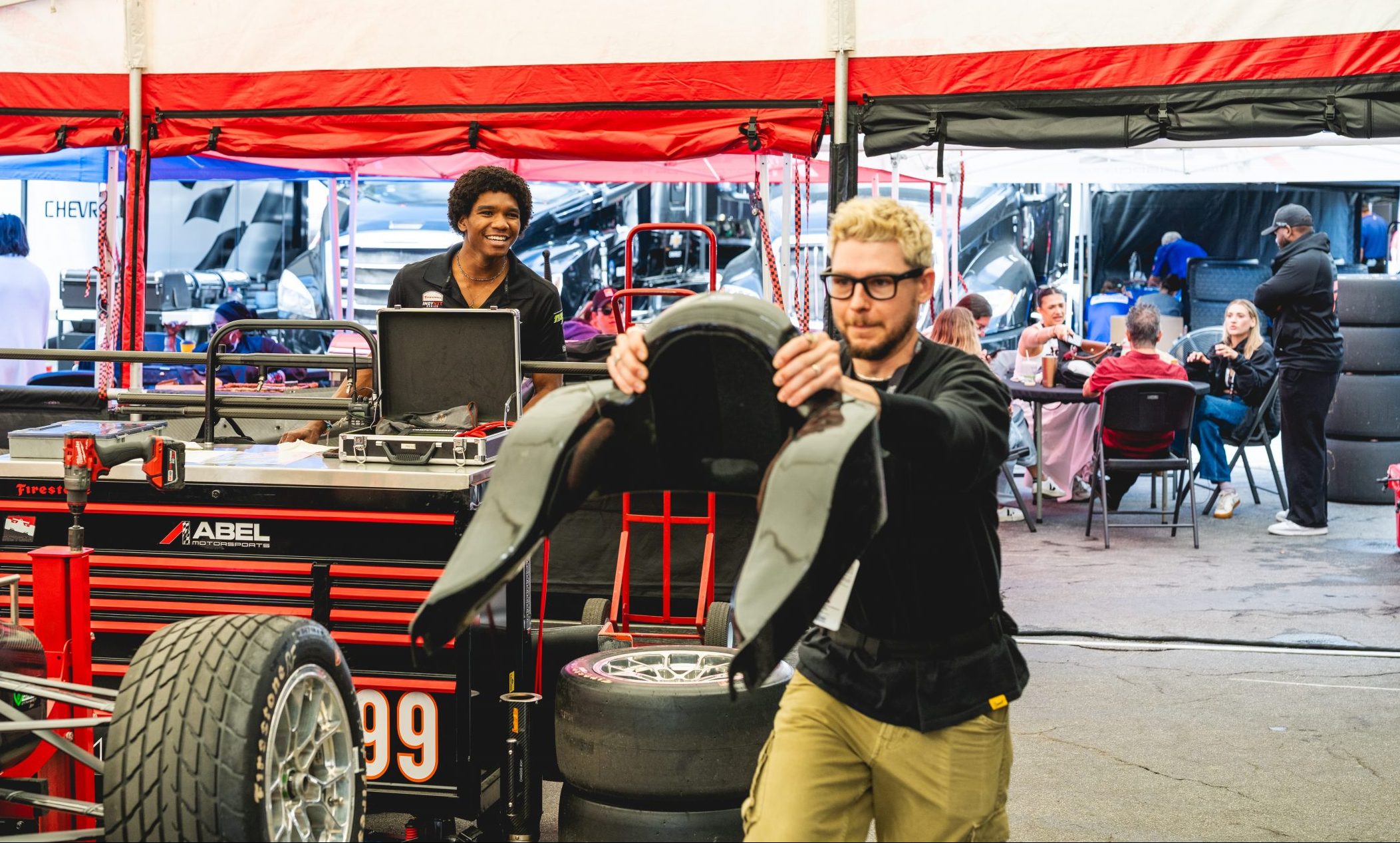
What’s that reset process? What are you doing to center yourself?
Just breathing and stuff. It’s kind of a big process of appreciating your whole day, just remembering it’s good that you’re alive today and stuff like that. Getting time away from focusing on what we were just doing and coming back to reality, and the sense where, like I said, good to be alive, and then second of all, that it’s a privilege to be doing what we’re doing. Getting time to do that gets me a little bit more excited. And then, just focusing on racing, which is why we’re here in the first place.
So you kind of get out of that mindset because, of course, you focus heavily on that qualifying session before that happens. Once you get past that, you get to the main reason why you’re here in the first place, which is racing. So, even if you don’t start first, you know you’re here to pass cars. So that gets me pretty excited and helps me reset.
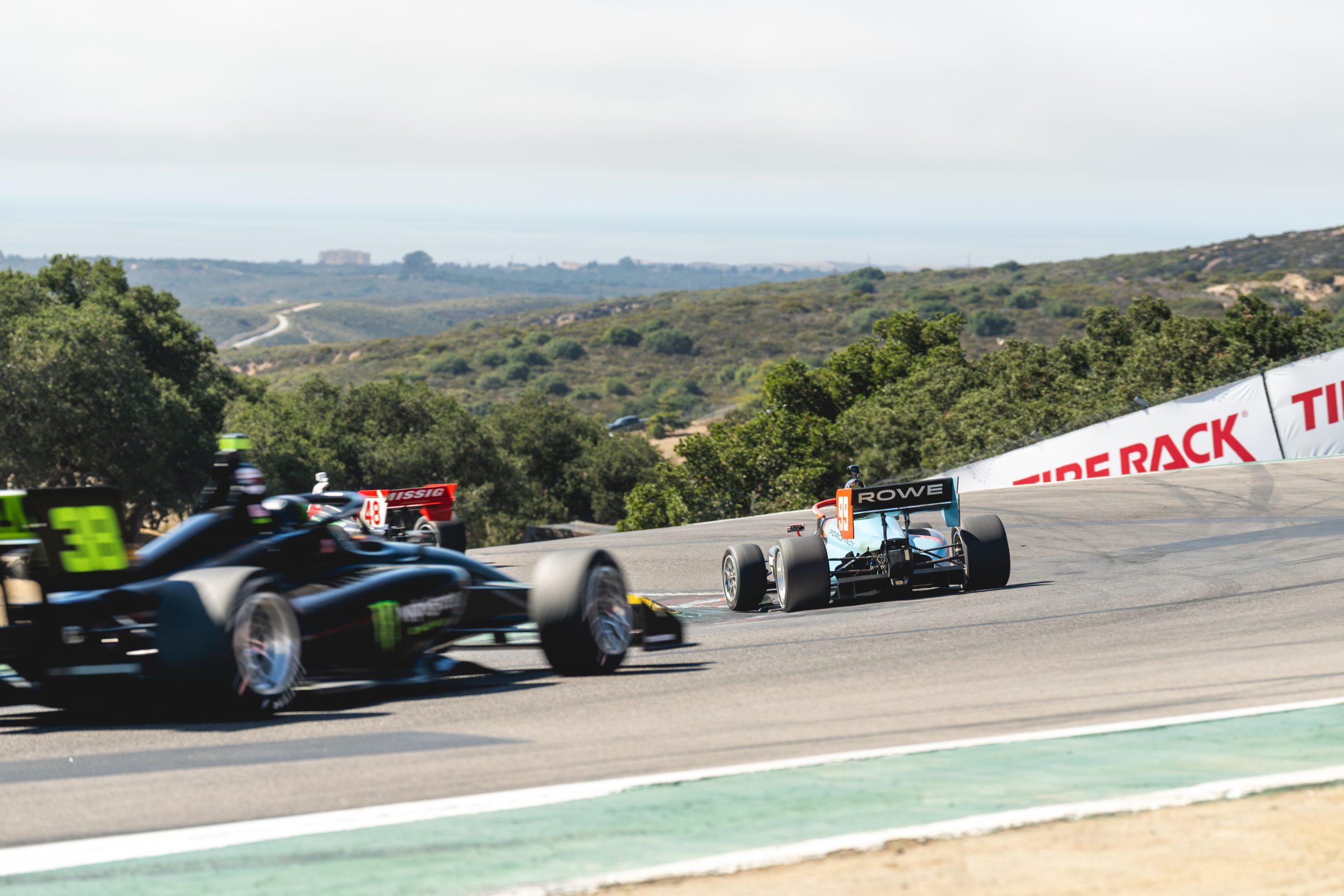
How do you feel about Ricky Bobby: If you ain’t first, you’re last?
[Laughing] That’s exactly why I’m a little disappointed… That echoes in my head all the time, all the time. I said that to one of my engineers a few minutes ago. He was like, “Are you okay?” and that was my response to him.
But there’s got to be a little bit of fun in making the battles, trying to get through the crowd?
Of course, yeah, and that’s kind of what gets me excited. A lot of people always tell me that’s what they like about my driving, because even though I don’t start in first, more often than not, I’ll be moving up and be contending and putting pressure on people. Where I’m starting this weekend, it’ll make the show exciting.
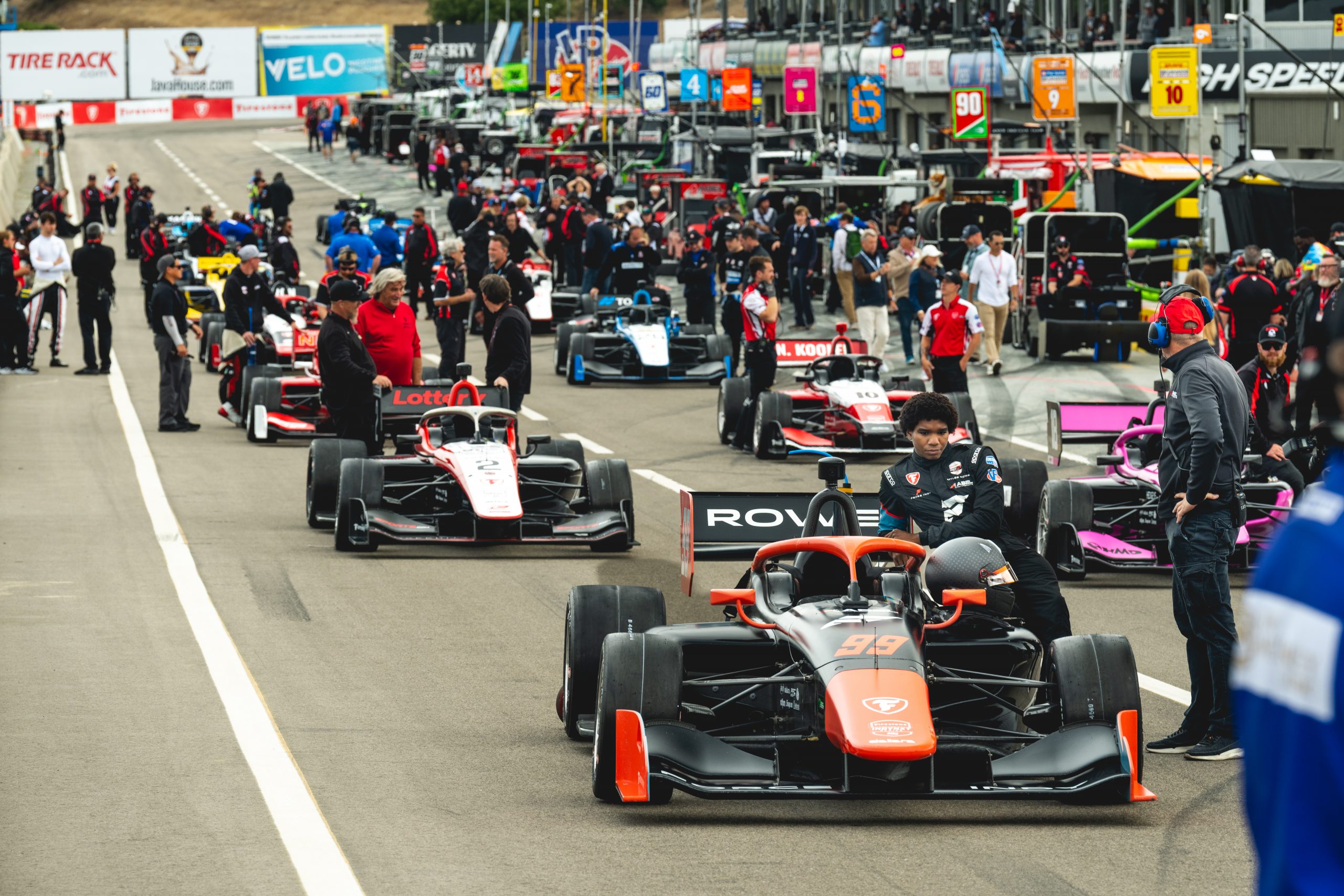
So, as a car publication, I got to ask: what do you drive?
I use the MTA. I don’t have a car.

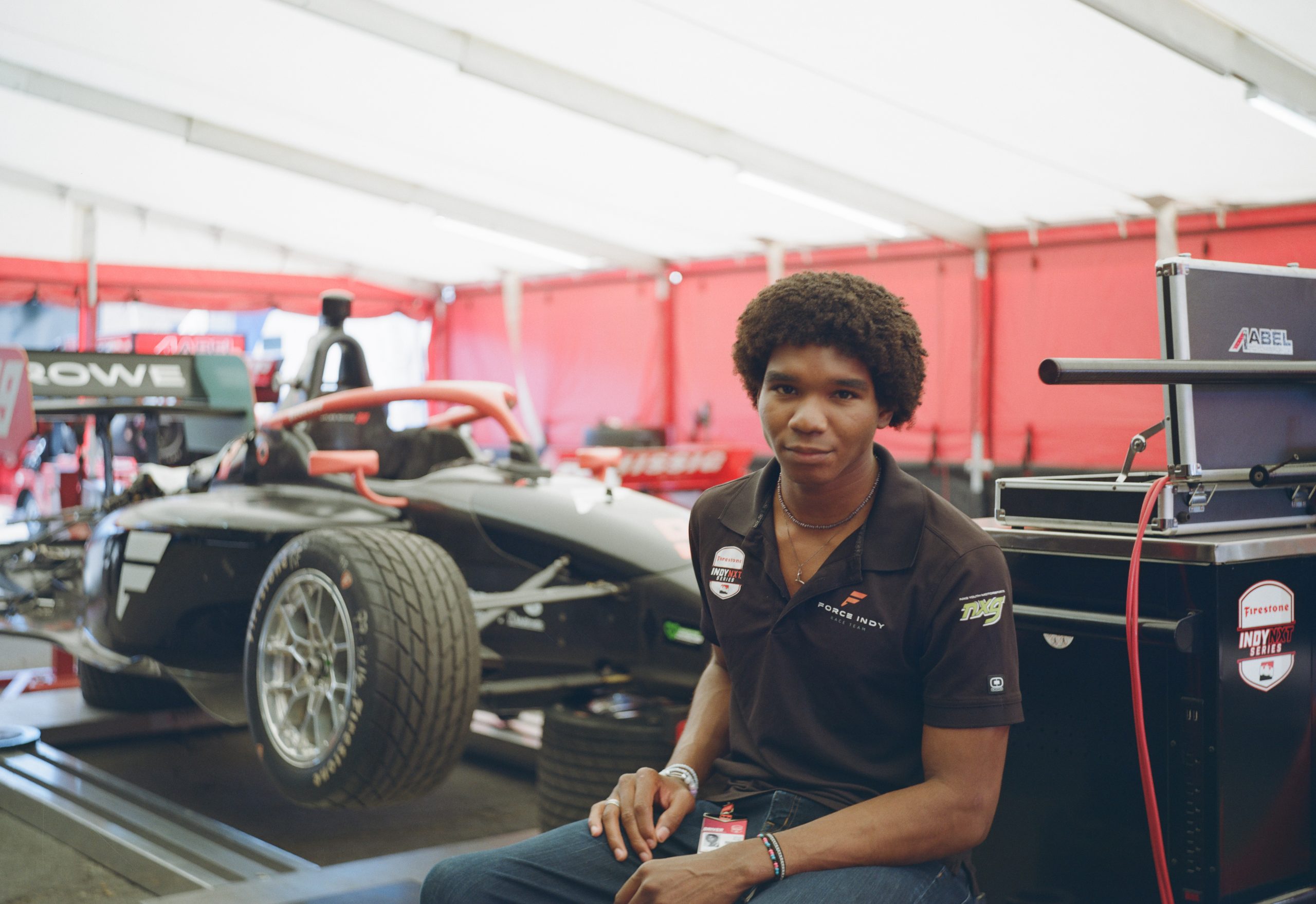
I had a feeling that it would be the answer.
Yeah, yeah, yeah. So I skate a little bit, not really much anymore because of racing, but sometimes I’ll throw down the board and cruise somewhere, either to my girlfriend’s place or something. But most of the time, I’m catching the R train at my stop or whatever. Is that weird? Because so many of the others have cars, they’re “practicing” every day. Is it weird that, outside of race weekends, you probably aren’t driving that much?
I’m sure it’s weird for them to think about that reality, but for me, it’s not too bad because I know when I’m driving, I’m going to be driving fast. I’m not going to be driving to get somewhere, sort of thing. It kind of keeps me separated, which is another thing the city does that I appreciate. It kind of keeps the two separate in a, I don’t know, more in like a creative way.
When I’m not in the city, it’s all about performance and going fast. When I’m in the city, there’s nothing about going fast, nothing about driving. It’s all about what’s around me, walking and everything, your imagination from whatever you’re thinking about on your walk, or whatever you want to do or will be doing with your friends. It’s just kind of like an easier separation of my two different worlds, I think.
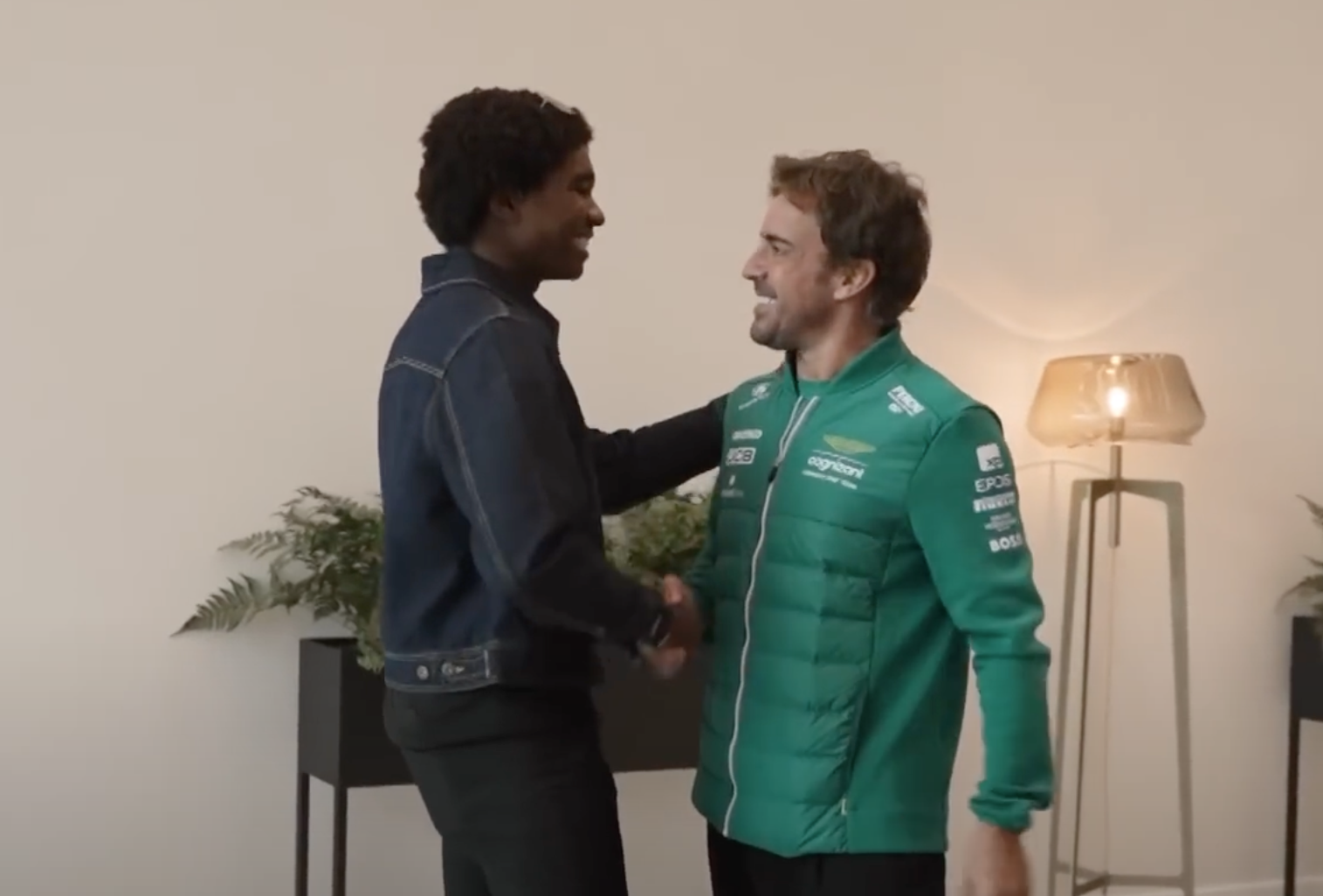
You had an interview a couple of years ago where you talked about getting into racing after flipping through channels, watching golf with your dad, and seeing Fernando Alonso in the blue and yellow Renault. What was it that appealed so much to you?
Yeah, so when we switched the channel, I think it was like the attitude of the car that really got to me, that really resonated with me when I was a kid. We watched it through, and even just seeing the podium and seeing him as a driver and the other drivers, you could just tell there was something different about them, kind of like how they were wired and everything, and that was something that really resonated with me. I already wanted to be a golfer, so I wanted to be an athlete already, so seeing that kind of version of an athlete really appealed to me, something that I didn’t know existed at the time. That just made me want to dive deeper into it.
And then I saw another real cute video of I think it was your mom who maybe did the home interview.
[Laughing]. Yeah, yeah.
I did my research.
[Nervous laughing]
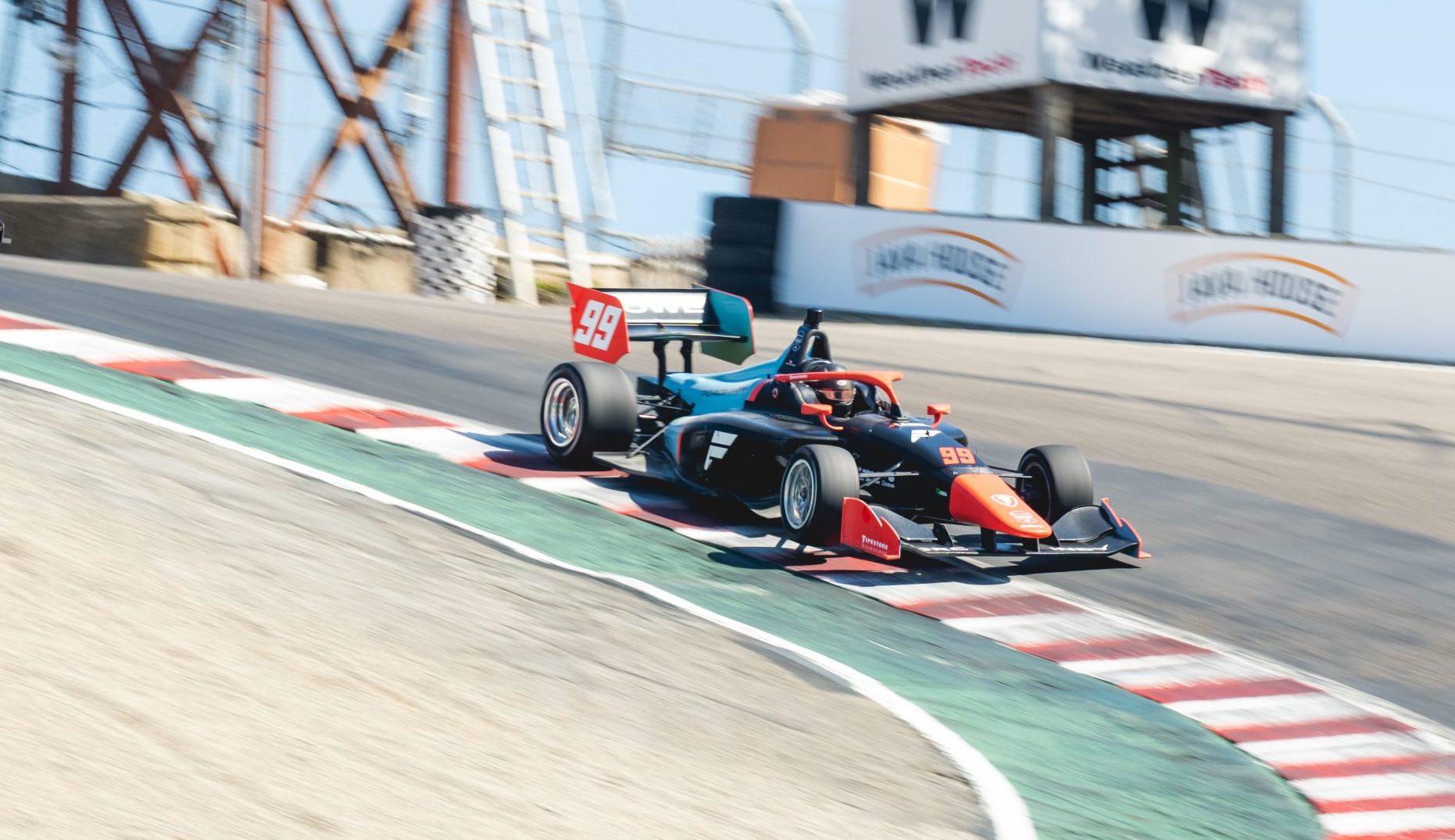
You specifically said that you love Grand Prix racing and not just turning left. How do you feel about the fact that you’re in a series that runs a good amount of ovals? Do you have more of a love for them now?
I do, I do. I had this conversation with someone a day or two ago. I didn’t like the idea of oval racing when I was younger, especially growing up being influenced by Formula One. I wasn’t actually influenced by IndyCar until later in my years, so I never really took an appeal to that, but once I actually got out and did it, […] it was really the racing aspect.
I think the open-wheel car honestly helped, trying in an open-wheel car because it’s just so crazy experiencing the turbulence and the forces at play when you’re racing against other cars on an oval, and that was something I just never really even gave myself the room to really understand when I was younger. Being able to do that and experience that completely changed my whole perspective of that side of racing. Ever since my first oval race, I’ve just been absolutely in love with it because it’s just like the rock and roll of things. It’s amazing.
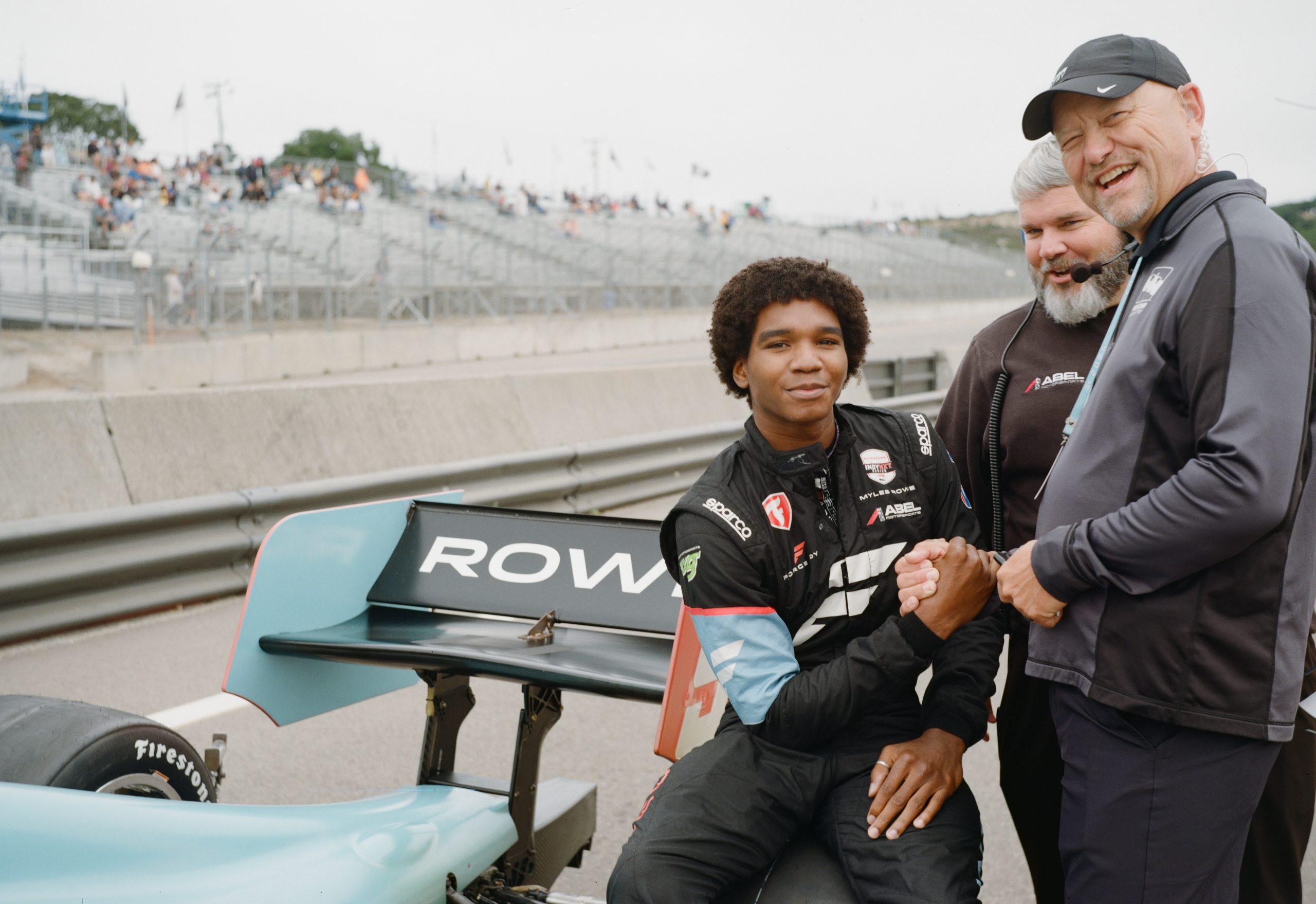
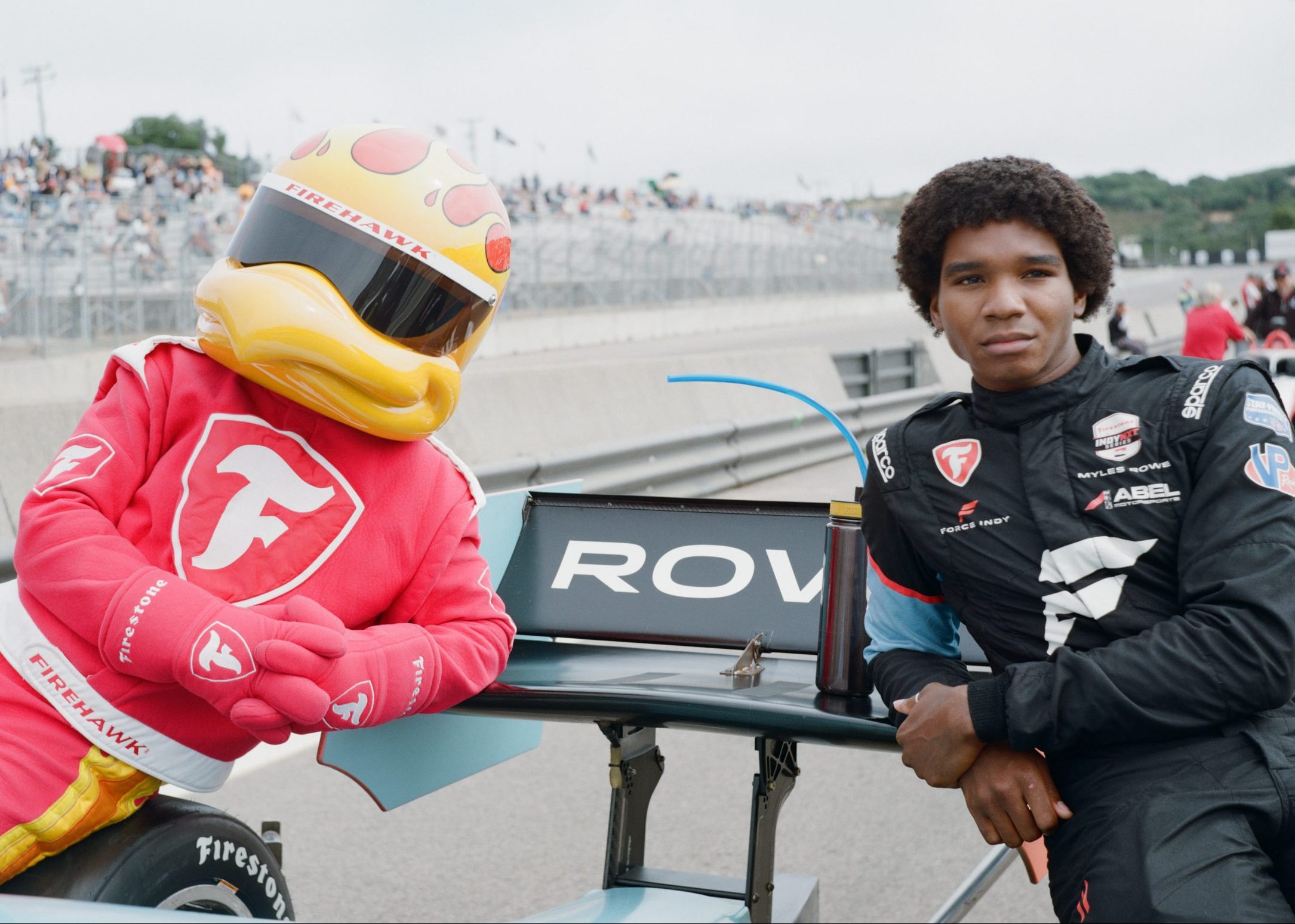
In 2021, you became the first African American to win a USF 2000 race. In 23, you were the first to win an American open wheel championship, and just a few weeks ago, you became the first African American to win in Indy NXT. What’s it feel like to make history?
Yeah, it’s very surreal. I have a lot of expectations of myself, so it’s nice that all the pressure (it was really bad when I was younger) and the expectations I put on myself [are] kind of accumulating now, because I think it equates to the amount of potential I knew I had, and will continue to have. The expectation and the weight of pressure I put on myself, I think it equates to that and more. I don’t want to say [it’s] relieving; I think it makes sense and I’m very grateful for it, because like I said, it’s something that I really sacrificed a lot for and worked really, really hard on. So it’s nice that I was able to achieve those things, because that’s the level of the work that I do, you know, by myself in private.
In terms of sacrifice, did you really have any kind of motorsports background beforehand? Did your parents have any connections? What was it like coming up?
Absolutely nothing, I had to do all this stuff myself.
The only reason I started doing it was because there was a phase for about a year or two, when I was about 10 to 12, where I would always research all these different go-kart parts and things that my parents possibly could buy that they never ended up buying because it was too expensive. I’d wake up every Saturday. I remember I did this religiously, it was like I was like in a loop, it was crazy. And I’d always add all these things on this website called tsracing.com, it was one of those motorsport websites where you have every single part you can need for like body work, the chassis components, the steering wheel, whatever, muffler parts. I’d add everything we needed, and it would come up to some crazy number of a couple K or whatever.
I’d show my dad every time, just hoping we could afford it this one week or something–but I was a big dreamer back then. So after doing that a few times, I realized that that probably wasn’t going to work, so I started looking for different leagues that I could even do in rental karting.
I don’t even know if this might have started when I was doing that research, and then it just came up on Google at the right time, but I found a rental kart league in Georgia from doing all this research, and it was like $300 for a season, which was, I think, a four-month thing or a five-month thing. So we went to see, check it out, and do that.
You had to do a training, evaluation session because they had different levels [that] were basically pro, intermediate, and rookie, and it was GT1, GT2, GT3. Normally, they start you in GT3, but they were like, “You’re too quick for GT3, so I’m going to start you in GT2,” and that was history. So I did that championship, and then I actually won that in my first year by one point, in the very last race.
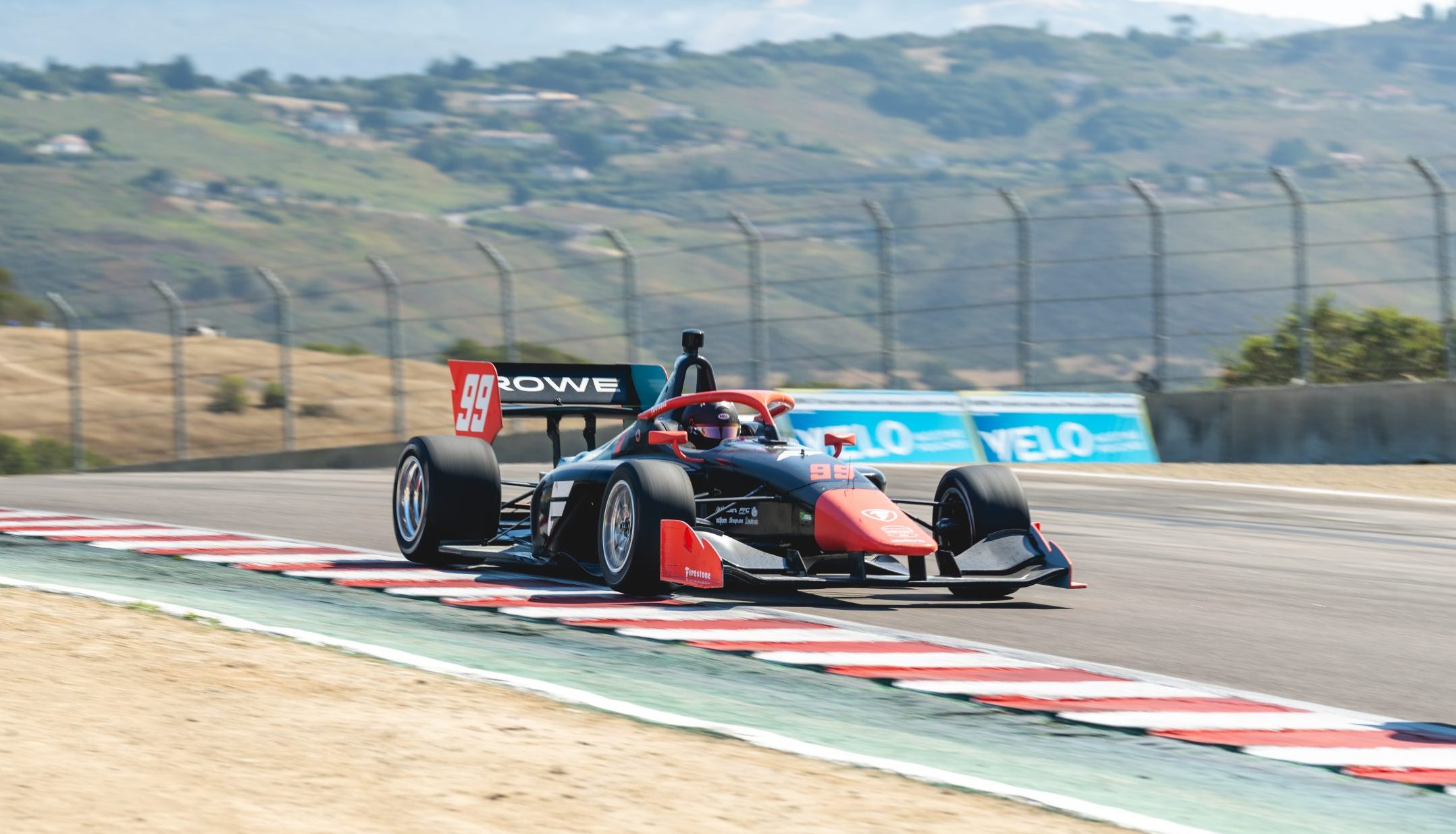
Word.
And they were all very surprised by that, because that wasn’t even the championship I was supposed to run. I was supposed to run the lower one. And I didn’t do absolutely anything before that. I have no history of motorsport at all. That’s the beginning of the Rowes and motorsport right there.
So you got folks like Hamilton who have talked a lot about his struggles breaking into this sport as a Black man in a largely white industry. Do you feel like you share a lot of that experience, or do you feel like you’ve faced a lot of the same challenges?
I think well, I know, Lewis definitely had a lot more trouble than I did coming up, which is the industry and people just not being so welcoming. In the Road to Indy, since 2021, everybody’s been very welcoming to me, and everyone’s been very supportive of me and the program. There have obviously been some people who have been skeptical and maybe not thought it would last, and maybe not have the most positive views on how it would transform. But I haven’t had anything bad going on since 2021.
Go karts, it was another thing, my dad got the worst of it. Just people not really being welcoming to him. Some kids were leaving me out of circles and stuff. I felt kind of isolated in go-karts, and that was really, really difficult. My dad could see that, so we had a pretty difficult time in go-karts.
It didn’t really feel like a place where we could come and feel welcomed. Sometimes it was okay, like the GoPro Motorplex in North Carolina was a lot better, but when we would go on the road, it would get pretty difficult, and we’d feel very, very isolated and couldn’t really… get around too much. My dad did very well, though, and made the best of it as he could, and there were some people who were very helpful to us, but I know, especially being further back in the day, like Lewis, had a lot more controversy. It’s gotten a lot better now.
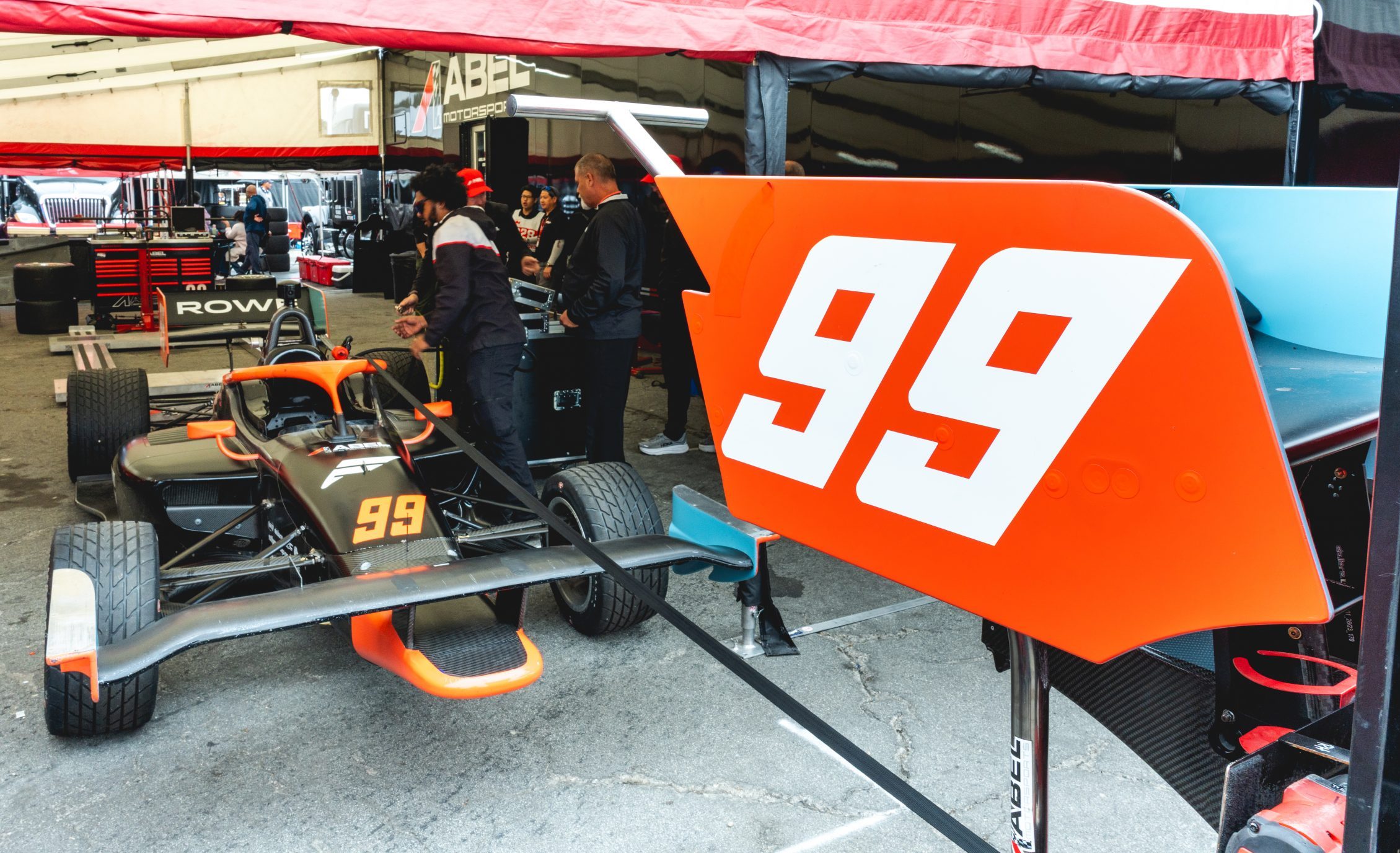
Is there any significance behind your number, 99?
Yeah, so there’s this African American driver named Rajo Jack, who never won in the 99 before, so we wanted to run that number number and win in that to pay homage to him, because he even had trouble sometimes getting into the Indianapolis Motor Speedway, because they just didn’t allow Black drivers back then and you were kind of lucky to race. He was in that era where it was never welcoming. He never had the best equipment or anything close to it, and didn’t win in that number when he had it. So we just wanted to take that and kind of, you know, bring it to the present now and pay respect to that.
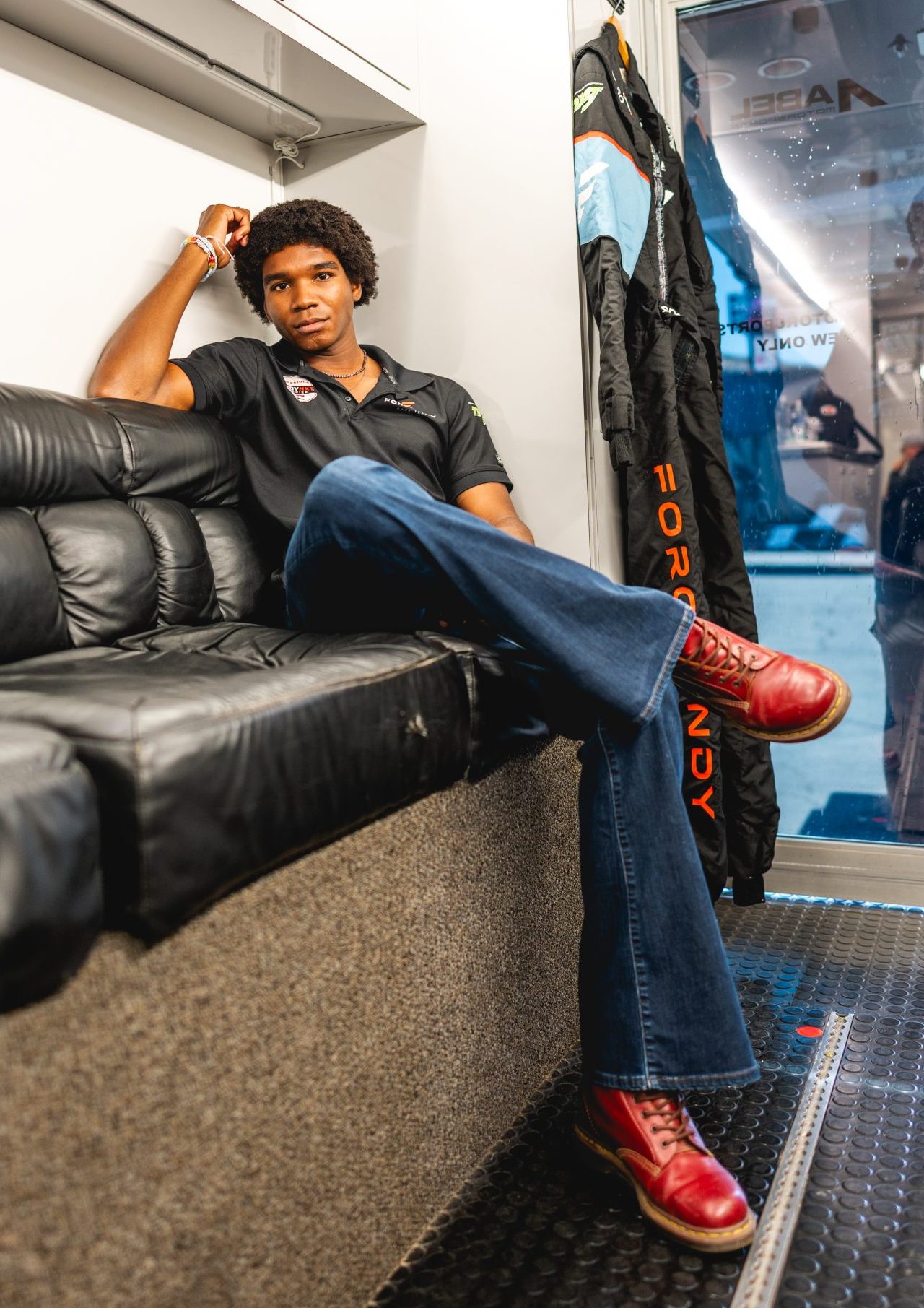
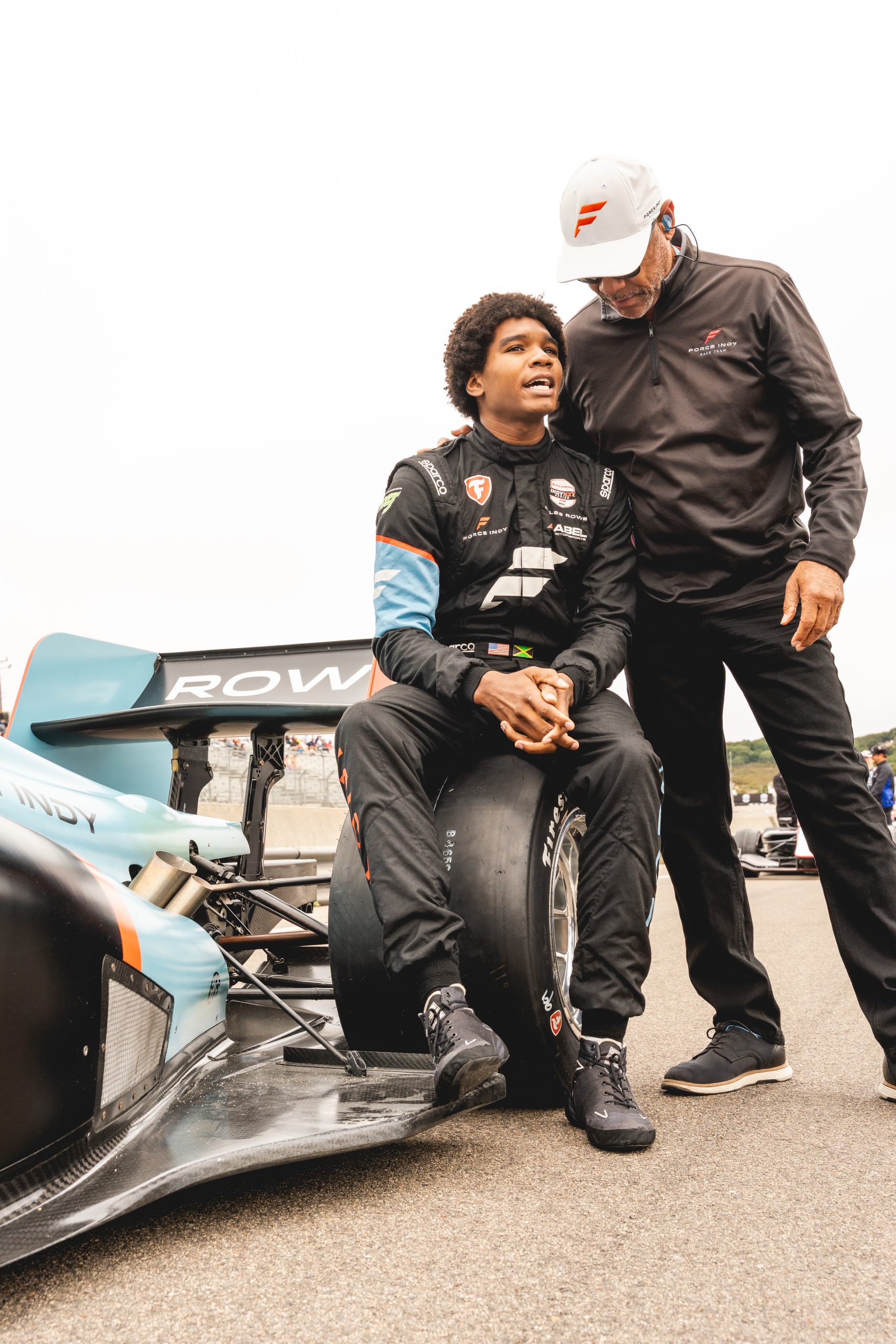
Is there anything you’ve learned in your daily life that’s helped you find success in racing, and maybe the same thing in reverse? Anything you learned from racing that’s helped you day to day?
Yeah, I think that one’s a pretty deep one.
I think patience honestly just applies to both, kind of like all things come to those who wait. That applies just as much in racing as it does in life, in my experience, for sure. I think that’s the biggest one, honestly, and kind of the most boring because no one likes waiting. But it really is crazy how powerful the act of being patient and grateful is and using the resources you have, because that played a big part in me being able to be here now and still having faith that things will come, you know? So just have faith in yourself, and then the patience thing.
I think confidence too, like, especially in New York if you’re an artist or something, pursuing your passion. As much as it applies in racing confidence, the more confident you are, the more your work is gonna be pure from yourself and it’s it’s not gonna be muddled by second guessing yourself and […] making your work for the consumer and how you want them to see it versus what you actually believe and making it just from your heart and soul.
That same confidence goes into racing where you can’t second guess on track and in the engineering room sort of thing, you have to have confidence in your team, and the mechanic setting up the car, your engineer, and what he thinks, how the balance should be, but also in your line and how you perform on track. That helps you attack the corners properly, that helps you not be scared about going off track, and make the correct passes and not fall short. That same idea of falling short can happen with a lack of confidence in the real world, especially in an artistic, creative way.
Well, then I guess the last question for you is, what’s your favorite place to grab a slice?
Luigi’s Pizza in Brooklyn.
What makes that so good?
Oh, man. Well, first of all, the dough everywhere in New York is really good. But something about Luigi’s […] There are some places in New York, like Little Italy, where the bread’s like like good and thick, which is nice, but also like some places like Joe’s where it’s pretty thin, which can be your thing, but Luigi’s? It’s just right.
All right, man, thank you so much.
Appreciate it, man.

—
Rowe held his position on Saturday’s race, starting and ending in P4. His Sunday had a lot of contact, both on the giving and receiving end, ultimately ending in eighth place after starting sixth. His next attempt out will be the final race of this season, this weekend, at the Grand Prix of Portland.
(This interview has been edited for length and clarity. All photos by author unless otherwise noted.)








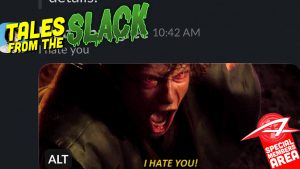
Great article. I don’t have a huge amount of time to follow anything but Indycar these days but I do like to check in on Myles on the rare occasion I get to watch NXT. I really hope we get to see him in Indycar soon.